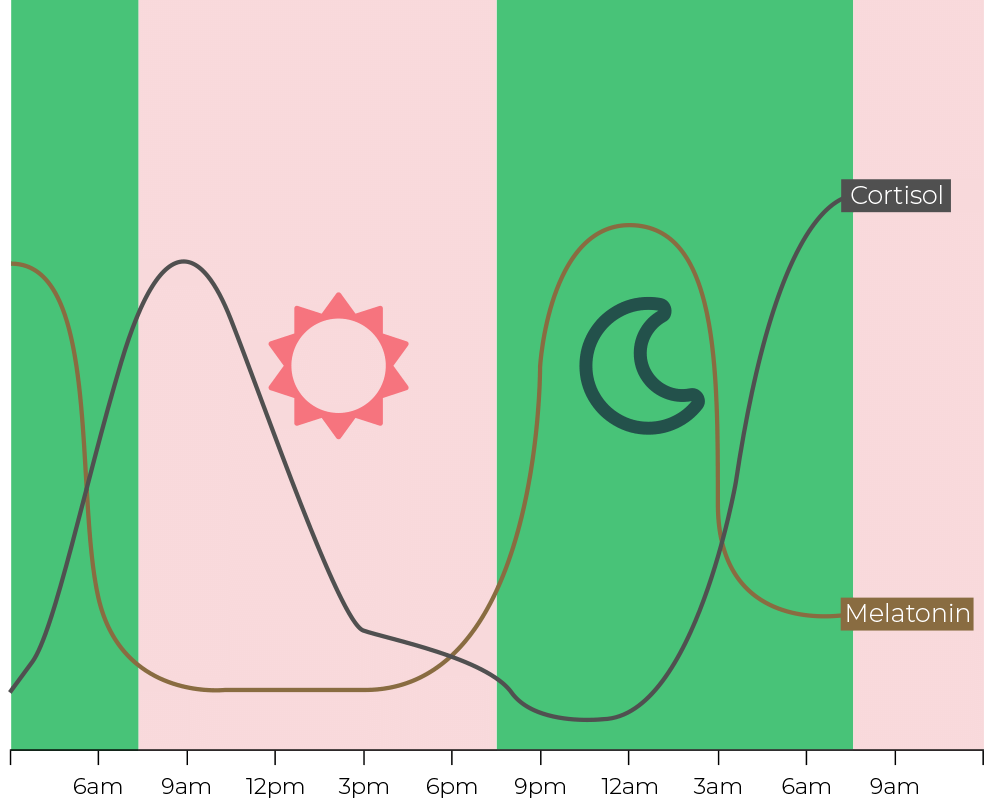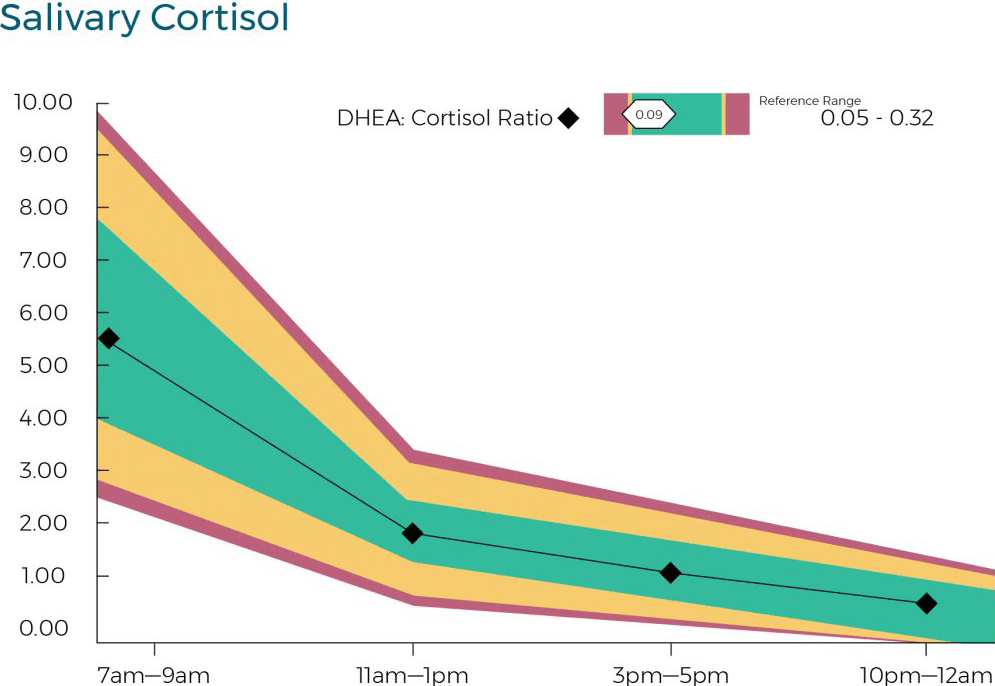Managing Stress and Adrenal Dysfunction
- Stress Recovery: Recover Your Calm, Strength, & Resilience.
- Professional Insights: Understand Your Body’s Individual Stress Response.
- Nourished Living: Restore Balance Through Nutrition & Mindful Living.
CELEBRATING 20 YEARS IN PROVIDING EXCELLENT HEALTHCARE
Manage Stress Better
Chronic stress shows up everywhere – in your digestion, hormones, sleep and ability to think clearly. This package combines an adrenal stress test, targeted nutritional guidance and focused coaching to help you understand your stress load and build a more sustainable way of living.
You’ll be supported to:
- Map how stress is affecting your body, mood and performance
- Use adrenal and related markers to inform gentle, realistic changes
- Adjust nutrition to support energy, blood sugar and nervous-system regulation
- Create daily routines and boundaries that protect your wellbeing
Package investment: £800
What’s Included: 2-hour nutrition bundle • Adrenal test • 2 health coaching sessions
Supporting You In Managing Stress and Adrenal Dysfunction
Stress. The word itself may trigger a physiological response; it is a perception after all. And stress makes us sick.
The study of stress physiology and how it influences our health has grown in recent years.
There has been a critical shift in medicine recognising that many of the damaging chronic diseases can be caused, or worsened by long-term stress.
We are activating a physiological system that has evolved to respond to acute physical emergencies like a fight or flight, and turn it on for months or even years on end. We deal with several stressors on a daily basis, from family to finances, deadlines and disease, and yet the body has only one stress response, as it tries to get back to balance or homeostasis. Simply thinking about, or anticipating the stressor can trigger the stress response.
Our adrenal glands located on top of each kidney produce various hormones that support essential bodily systems, such as cortisol and sex hormones. They help our body respond to stress, and they balance our blood sugar levels and fluids.
In adrenal gland disorders, our body is producing too much or not enough hormones for our body to function optimally.
Adrenal dysfunction also known as adrenal fatigue can be the result of chronic stress exposure – this can be either physical stress due to an infection or toxins, or emotional/mental stress.
MEET SUE, CLINICAL DIRECTOR & HEAD OF NUTRITION
Sue shares the benefits of working with our expert nutrition team at the HealthMatters Group
Common causes of adrenal dysfunction include
- Lack of sleep
- Poor diet (high sugar foods can lead to overproduction of cortisol)
- Stimulants such as caffeine and alcohol
- Chronic infections
- Environmental toxins
- Chronic emotional stress
- Over exertion
- Lack of relaxation or recovery
- Toxins
- Negative attitudes and beliefs
- Fear
Doctify reviews reflect HealthMatters Group client feedback across services
BOOK A CALL WITH OUR FRIENDLY ASSESSMENT TEAM
Please check Our Fees page before booking a call.
Choose a day and time that works for you.
Tell us what is going on for you.
Let us explain how we can help.
OUR FEES
Our initial 20-minute consultation is free of charge, with therapy sessions starting from as little as £120, and nutrition sessions from £200.
Packages and multi-session bundles are available – we’ll guide you to the most suitable option when we speak.
What Are the Symptoms Of Adrenal Dysfunction?
Chronic stress can cause our adrenal glands to produce too much cortisol leading to symptoms of fatigue and tiredness.
Other common symptoms include:
- Poor sleep and sleep disturbances (mainly trouble falling asleep and difficulty getting up in the morning)
- Lack of energy and continuing fatigue not relieved by sleep
- Craving salt or salty foods
- Craving sugar and sweet foods
- Increased effort to do every day tasks
- Lack of energy
- Decreased sex drive
- Decreased ability to handle stress
- Increased time to recover from illness, trauma or tragedy
- Heart palpitations
- Dizziness or light-headed when standing up too quickly
- Mild depression or loss of enjoyment or happiness with life
- Increased PMS
- Brain fog and fuzzy thoughts, lacking cognitive clarity
- Memory less accurate
- Loss of body hair
- Skin discolouration
- Body aches

Opportunities to address this
If you are struggling with any of the above symptoms it is important to rule out any medical causes. We address adrenal dysfunction with a holistic approach utilising both lifestyle management and dietary interventions.
It is important to understand the root cause of your stress and whether it is physical or emotional, or perhaps both. One of the first principles is to, where possible, address (or remove) the cause or aggravating factors which may be causing a health drain. Lifestyle changes are often an important part of any recovery program.
Stress management techniques such as relaxation, deep breathing, mindfulness, moderate physical activity and yoga can help reduce the levels of cortisol in your body and thus reduce the over-stimulation of the adrenal glands.
Following a healthy diet with essential fats, good quality protein and lots of colourful vegetables can help to balance your blood sugar. Being aware of not only what you eat, but also when you eat is important. Dealing with any cravings is another important goal. Staying hydrated with clean, filtered water and avoiding high intakes of coffees, teas and energy drinks is also key for increasing energy.
Targeted supplementation can play a crucial role in supporting adrenal function. Of all the vitamins involved in adrenal metabolism vitamin C is probably the most important. The more cortisol made, the more vitamin C is used.
Other important nutrients to consider for managing stress are the family of B vitamins and vitamin E. And the minerals magnesium and calcium shouldn’t be forgotten.
Trace minerals such as zinc, manganese, selenium, molybdenum, chromium, copper and iodine should also be considered in a comprehensive program for stress support.
Herbal adaptogens such as Licorice root (Glycyrrhiza glabra), Ashwagandha root (Withania somnifera), Korean Ginseng (Panax Ginseng) and ginger can also be very beneficial for adrenal support.
Functional testing options
Cortisol helps to get us up and out of bed, and has a circadian rhythm decreasing through the day to sleep. This daily rhythmic cycle also controls your timed preferences for eating and drinking, moods and emotions, your core temperature, your metabolic rate and the release of numerous hormones.
One of these is melatonin which is released into the bloodstream from the pineal gland and regulates the timing of our sleep cycle. It has an inverse relation to cortisol.
Once sleep is underway, melatonin slowly decreases in concentration across the night and into the morning hours. As dawn sunlight enters the brain (through closed eyelids) the production of melatonin is shut down and cortisol starts the process of active wakefulness.

We offer several comprehensive adrenal dysfunction and stress tests with private laboratories measuring melatonin, cortisol, DHEA and Secretory IgA (SIgA) to assess sleep and stress response and to gain deeper insight into your overall adrenal function. More comprehensive hormonal profiles can also be considered where relevant.

FAQs
What is adrenal dysfunction, and what are common symptoms?
Adrenal dysfunction refers to imbalances in stress hormone production, especially cortisol, and it is often linked to chronic stress. Common symptoms include poor sleep, fatigue, cravings, low energy, low libido, anxiety, trouble coping with stress, heart palpitations, and increased pre-menstrual syndrome (PMS).
Can nutrition support help with stress and adrenal dysfunction?
Yes! Imbalances in cortisol can be supported by balancing your meals and stabilising blood glucose (sugar) levels, as well as optimising levels of key nutrients that support adrenal hormone production and energy metabolism. Your practitioner will assess your specific nutritional needs, and provide you with a personalised protocol to optimise adrenal function and promote resilience to chronic stress.
Can stress affect my weight?
Yes – stress can affect your weight by triggering hormonal changes that impact appetite the way your body stores food. Your body’s response to dysregulated cortisol may differ to others, and your practitioner will tailor nutrition support and strategies to your individual stress response.
How does the approach at NutritionalMatters differ from what my doctor offers?
Nutritional interventions focus on making sustainable dietary and lifestyle changes, considering where there may be functional imbalances in the body. Our nutritional practitioners will provide you with tailored dietary and lifestyle recommendations, based on your nutritional needs and health goals. Our practitioners complement GP care and any existing medical treatments administered by a doctor, as part of an integrated care model.
Does NutritionalMatters offer testing to assess adrenal health?
Yes. Our practitioners can work with a variety of functional tests, including saliva or urine tests, that assess diurnal cortisol patterns, blood glucose levels, and key nutrients.
Why is functional testing important if my GP says my cortisol is normal?
The tests our practitioners use look at patterns across the day, not just one snapshot, to detect any deviations from our natural cycle of daily cortisol levels that may be associated with chronic stress or adrenal dysfunction.
What results can I expect and how quickly?
Results depend on the complexity of your existing health condition, and your commitment to making changes recommended by your practitioner. Some clients feel changes after a few sessions, whereas clients with more complex health needs work with our practitioners over a longer period of time. In your initial consultation your practitioner will discuss and agree the cadence of ongoing sessions, to support the reduction of your symptoms and improvement in your health and wellbeing. Nutrition support gives you the tools to manage your health in the long-term, focusing on sustainable changes.
How much does this cost overall?
Your first session with one of our nutrition practitioners is more than just an assessment – it’s the beginning of a relationship built on trust, expertise, and care.
Initial 60-Minute Nutrition Consultation – £200
Whether you’re managing complex symptoms or just want to feel better in your body, this is the space where your journey starts with clarity and direction.
Healing your body and transforming your relationship with food takes time.
Time Bundles give you the flexibility to shape your care around your lifestyle, pace, and needs.
After your initial consultation, you can choose to continue with a 1, 2, 3, or 4-hour bundle of time, which can be used however works best for you.
1-Hour Bundle – £200
2-Hour Bundle – £380
3-Hour Bundle – £555
4-Hour Bundle – £720
NEXT STEPS
We know that getting the right support starts with being truly heard. That’s why we offer a free 20-minute enquiry call – time for you to ask questions, share a bit about your story, and explore how we can support you.
During this call, a member of our experienced client support team will:
- Listen to your health goals and concerns
- Explain how our services work and what to expect
- Match you with the most suitable practitioner for your needs
This is your time – to feel heard, to feel supported, and to start moving toward the health and balance you deserve.
